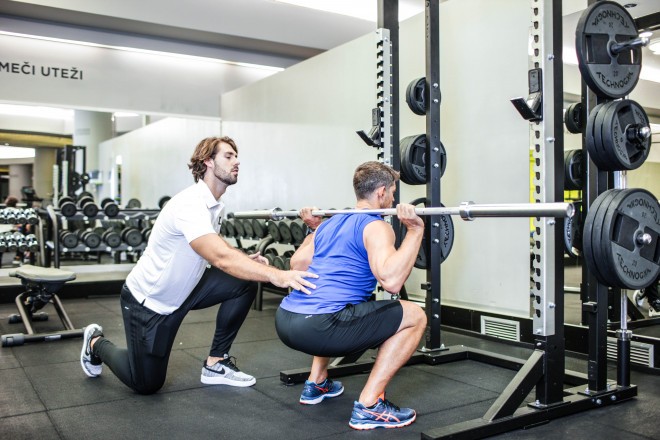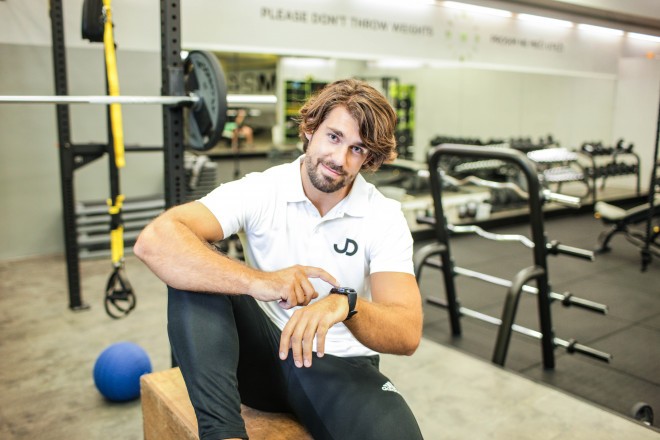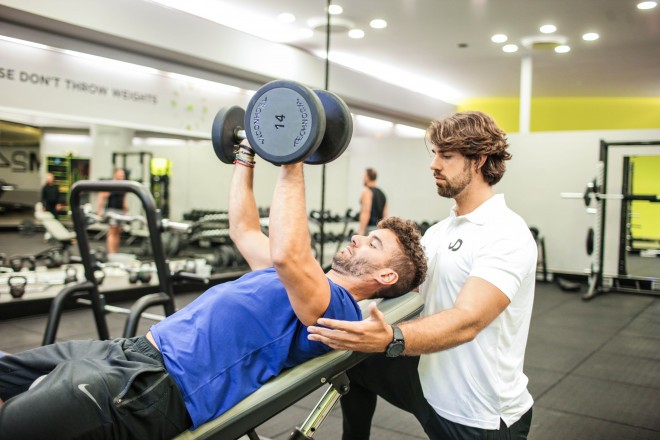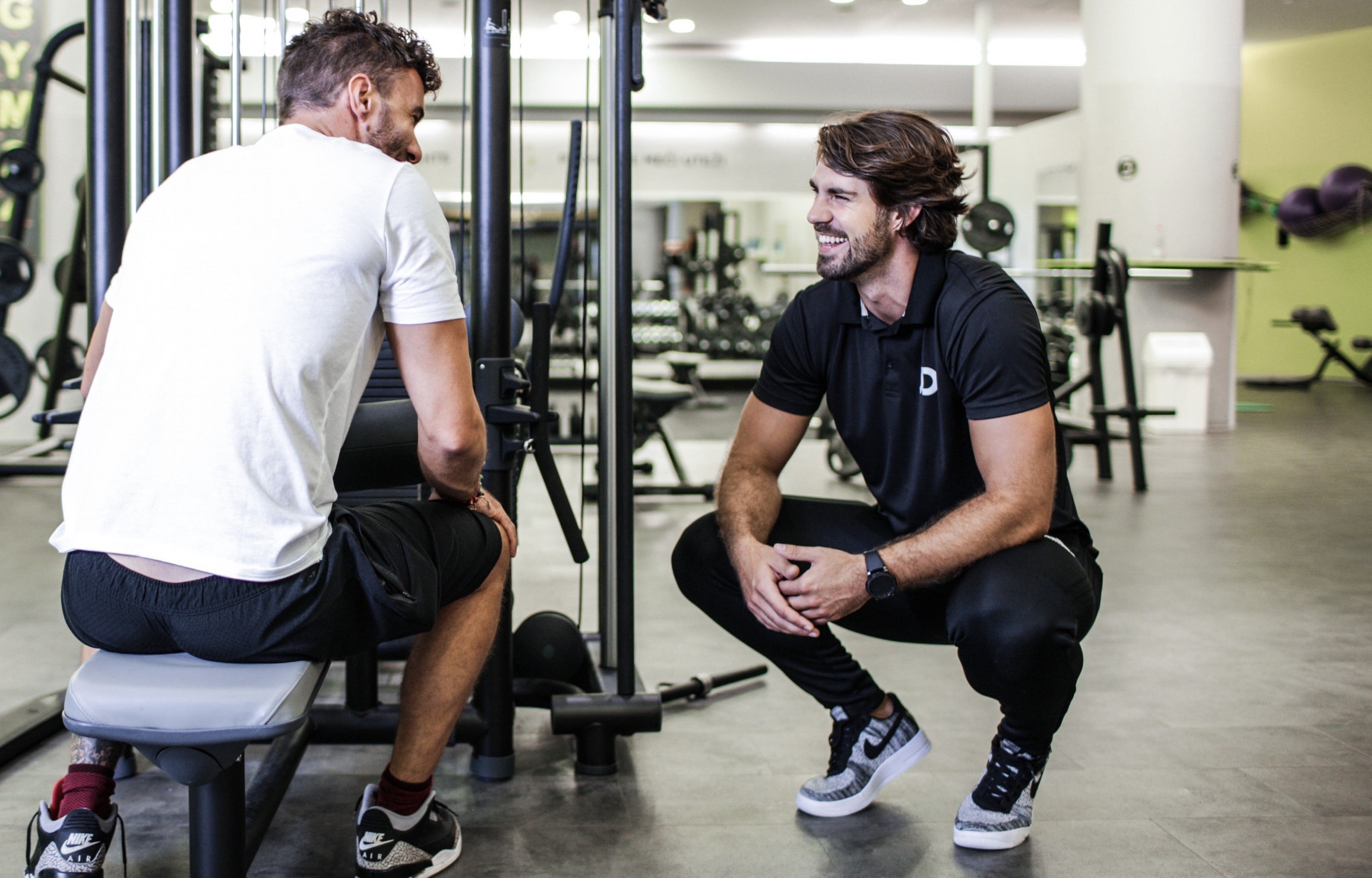We talked to renowned personal trainer Daniel Jelovic about the misconceptions related to exercise. This January always deals with those of us who believe in exercise myths, and of course with a bunch of those who set unrealistic New Year's resolutions. We've worked with him to pick out some of the most common misconceptions most of his clients have when they decide to start training.
If you had to choose the most common myth that practically all of us believe when we decide to train in the gym, what would it be?
Uh, that's a lot. The basic problem is that we were never systematically educated about fitness as a sport - we didn't learn fitness in school. In the best case scenario, when we enrolled in the fitness center, we were given less than an hour of instruction on basic techniques, which, of course, is not enough. As such, fitness is not just about lifting weights, it is a holistic approach and at the same time a decision for a "new" way of life. This is why an individual approach should be established in all segments, including nutrition and knowledge of one's own metabolism. But if I really had to point out one thing, I would point out cardio exercise, which is especially popular in January and I see it in gyms too much. Also because it does not build muscle, and as a result, the natural level of calorie consumption of our metabolism does not increase. New clients often have this very belief. More sweat - less fat. Which is not always true. Another misconception is that two or three training sessions per week are enough for a visible result. In principle, they are, but only if we take care of a bunch of other micro changes in our lives, with which we change the culture towards our own body. So if we walk more and generally move more. These things are sometimes much more important than training.

You mentioned culture towards your own body. What did you mean by that?
Our parents instilled in us habits such as brushing our teeth and cutting our nails. They taught us good habits. In families where "sport is at home", this is part of the culture, taking care of your body is taught from a young age. But if you were not brought up in such a spirit, you have to learn it. It is necessary to establish a good habit and thus a culture and attitude towards one's own body. However, our body is only one. We will be with him all our lives, and we have a duty to take care of him. In the final stage, for the sake of society, which is aging extremely quickly, we are obliged to keep ourselves in the best possible shape. It is necessary to set the right goals: realistic and at the same time healthy! Training should be self-evident, not an obligation.
When you talk about goals - are there many misconceptions about them?
Absolutely! When we first talk, most of my clients see only one goal, and that is their ideal or “dream” weight. This is by no means the right goal. The ideal weight is rather the result of a comprehensive approach to exercise. I don't lose weight with my clients, but I want to inculcate in them the right, healthy habits, which will definitely bring the desired results expressed in kilograms in the long run. This is the only right approach. That is why we first monitor eating habits and then analyze them together with a special application or a written food diary, thus identifying the calorie bombs that are hiding in the drawers of practically every kitchen. Only then, with a certain amount of exercise, do we eat in the right way to change and transform the body as close as possible to the metabolic optimum. The goal is optimal body and well-being, not optimal weight. So everything in the right proportions. In principle, I generally never change the eating habits of my clients, but try to understand them and just adapt them - both to lifestyle and to all other factors. Many times things cannot be changed overnight; these are very long-term processes. Losing weight is completely pointless, there is no point in bothering with it.
Many people fear that weight training will make them too muscular, especially women. Is this just another myth?
To anyone who thinks so, I offer a simple experiment of observing people who are in the gym and their physical characteristics. Many of them find out almost immediately that those who move weight, i.e. weights, look better and are definitely less "fat" than those who, in principle, only do cardio. This is by no means to be completely generalized, but it is often the case. Higher percentage of muscle mass = greater need for energy = less fat. The formula is extremely transparent and logical. Therefore, people who exercise on machines with weights generally have a better shaped body. Of course, it all depends on a thousand and one factors. The primary factor is definitely genetics, which you cannot ignore. It is also necessary to realize that it is more difficult to build quality muscle mass than to lose a few kilos. The fear of being too muscular is therefore completely unnecessary.

How is working with you as a personal trainer?
Primary is the analysis of my client's situation. I'm most interested in who it is. I'm interested in what her life is like in general, what her daily habits are like. None of my clients is just a client. Afterwards, I always use one of the most advanced measurements, the so-called bioscan, which analyzes all body segments and with which the client first obtains the basic condition and ratios between mass, fat, metabolic calorie consumption, etc. This is the basis for measuring the results of our work in the future. When we analyze the results of the work again after three months, the progress is visible not only in kilograms, but in all the proportions of the body. Maybe the weight loss is only 3 kilograms, but the overall body fat percentage is 4 percent lower. It basically means a lot more to me. Namely, the customer can clearly see the progress in all segments. In any case, this is one of the foundations. But what counts most is that they can fit into their old clothes. A new shirt is also often needed, as the old one is too small in the shoulders. How they see themselves in the mirror and how they feel in their bodies means the most to me. A kilo up or down, confidence is what counts. This is followed by the analysis of activities and eating habits, as well as micro-changes in daily habits, which are easier to introduce than some general changes. So a dose of moderation. This is followed by an exercise program that is precisely determined for each individual. It is important to me to discover what really makes the customer happy and to offer it to them in the right way. Why would someone do abs exercises if it is an unimaginable effort for them? I offer him exercises in which the abdominal muscles work secondarily, and only when we reach the appropriate level, without much effort, we switch to narrowly focused exercises for this particular segment. The same result can be achieved in fitness in many ways, but you have to use your head and try to understand the client.
What is the main function of a personal trainer?
I consider myself successful in what I do because of one key advantage. I don't care about my fellow man. Through my eyes, a real coach is someone who doesn't just give advice and some detailed information, but someone who takes the client by the hand and leads them through the process. Someone who tries to lead her from the "given potential" to the right goals with listening and the right approach; advise her as a professional and change her wrong beliefs so that they are good for her. Of course, this is someone who stands by you even when "laziness" or skipping training peeks out. That's when it's also important to be a friend - someone who can hear and understand. I'm not talking about fitness and food. I'm talking about life. I exclusively build long-term relationships with my clients. We all learn from them and grow with them. I see each client as a professional challenge, and this is the right way.

New Year's resolutions? The biggest mistake?
New Year's resolutions are perfectly fine. When we start setting them up, we realize and admit to ourselves that a change is needed. And this awareness is already half way to success. The problem is that we are too unpredictable and often have the wrong leadership. And this is where the responsibility of fitness trainers is extraordinary. The amount of repetitions of a particular exercise is not always the way to success; everything else has to be built into it - real understanding and teamwork! I once read that we like to overestimate what we can achieve in a year. And we underestimate what we can achieve in 10 years. To summarize in fitness style: we often overestimate what we can achieve in a month, which easily demotivates us, and we underestimate the process and results of a year. You just have to be aware of it.





